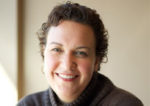A few years ago a couple seeking to adopt independently was offered a baby in exchange for $60,000. Believing the intermediary to be a baby trafficker, the couple contacted authorities and agreed to participate in a sting operation. The intermediary and the birth mother were prosecuted and imprisoned.
There are no statistics on the number of children in the United States or abroad who are the victims of child trafficking. The term itself is ambiguous. Generally, it is ethical and legal for adoptive parents to pay fees associated with adoption. States differ, but in independent adoptions, fees can include the costs of ensuring that the baby is born healthy, the medical costs of the mother, as well as reasonable costs for food and housing. In agency adoption, fees can cover operating costs of the agency overhead, salaries, educational programs, counseling services.
Of course, there are gray areas in these fee structures, as well as outright abuse. Prospective adoptive parents may offer a birth mother housing at a Malibu beach cottage. A birth mother may claim she needs a new car for doctor visits. An adoption professional holds an annual staff retreat in the Bahamas.
There are those, like the Rev. Ken Hutcherson in Redmond, Washington, who say that when parents pay money—any amount of money—to receive a child from someone else, they are buying that child, just like they buy a DVD player. Actually, Hutcherson compares adoption to the sale of African Americans by white plantation owners to other plantation owners.
Initially, Hutcherson was concerned with the difference between adoption fees for African-American children and white children, noting that fees for African-American children were significantly less. To him, that said African-American children were less desirable. But ultimately he opposed any adoption fee and established an adoption service funded by contributions. Last year this service placed some 40 children.
Hutcherson is not the first person to argue that the cost of adoption should be funded by voluntary contributions. Nobody should make money from the misfortune of infertility or unplanned pregnancy, goes the argument. No child should have to wonder how much she cost, or why someone else cost more or less. No child should have to wonder whether his parents think they are getting their money’s worth.
Money Corrupts
While this is a valid philosophical viewpoint, the practical reason for removing money from adoption is because it increases the risk of serious abuse. Birth mothers coerced into relinquishing their children, baby factories in which women conceive children with the intention of placing them for adoption, black marketeers who snatch children in developing countries for the purpose of adoption in America.
The further we go along that abuse continuum, the more horrified we get, and the more willing we are to agree that in this case, money begets corruption in adoption. Yet I have a friend who sincerely believes that the government or potential adoptive parents should be offering uneducated or drug-addicted pregnant women money in exchange for relinquishment. Their children, she argues, have little chance of growing up physically or emotionally safe. Furthermore, she believes (like Solomon) that any woman who would accept money in exchange for her child isn’t fit to raise the child anyway.
While few would admit to her sentiments, they are little different from those of the prospective adoptive couple who engaged in a bidding war on the internet for a baby, recognizing that the practice was unethical, but rationalizing that it was better for the baby to go to loving adoptive parents (themselves) than remain with people who would put the child up for auction.
This is, of course, where the ethicists divide. Is it better to do what is morally and ethically right, even if the result is that a child may be harmed, or does the end—a healthy, loving home for a child—justify the means?
Difficult Questions
While no agency will publicly say that fees for the placement of African-American children are lower because the demand is less, what if it is the case? What if African-American children, along with children having physical disabilities, will be placed in permanent families more quickly if the fee charged to adoptive parents is reduced? Is it discriminatory to charge less to parents adopting an African-American child than to those adopting a white child? Or is it discriminatory to charge the same fee for both, even though the average income of African-American families is lower than that of white families?
How does someone explain to an African-American child that parents could be found for him only if they weren’t charged much? How does someone tell an African-American child that, out of respect for him, his adoption fee was the same as a white child’s, but as a result it took two years to find parents who could afford that fee? Or that he was placed with white parents because they could afford the fee, while African-American parents couldn’t?
Some agencies with different fee structures for children of different races argue that those fees reflect actual differences in costs. African-American birth mothers often have Medicaid to cover their costs; their children carry government subsidies. It costs more, they argue, to find healthy, white infants.
All that may be true. I don’t know because I have never worked in adoption placement. But it doesn’t strike me as true. In fact, because African-American parents historically do not adopt through agencies, many agencies must develop recruitment programs aimed at finding African-American parents for African-American children, while they are overwhelmed with white applicants.
Is It Ethical?
And since more than half of the birth mothers who receive counseling and prenatal services from adoption agencies decide to parent their children themselves, the costs may be passed on to those parents who do adopt. It’s legal, but is it ethical to ask adoptive parents not only to pay for the actual costs incurred in the placement of their child, but to ask them also to pay a share of the counseling and prenatal care of the women who did not place their children?
Or maybe we should look at it this way: for an agency to stay open, someone has to pay the bills. For an agency to provide good care to birth mothers as well as services to adopting couples, someone has to pay for the birth mothers who choose to parent. Perhaps those of us who are more aware of the challenges that will be faced by the children of women who contemplate adoption are the ones most willing to pay for their counseling and good prenatal care.
Perhaps the concept of volunteer-run agencies funded with donations—or even professionals whose salaries are paid by donations—sounds more attractive. However, that is essentially how we’ve been funding political campaigns, and we know there can be abuses there, too. Would a particularly generous donor find more success in such an agency?
The reason it is difficult to find an equitable and ethical solution regarding fees in adoption is because we are talking about children, not DVDs. Good-hearted, ethical people find themselves turning a blind eye to red flags, not because they are desperate for a baby, but because they know they will provide a good home to a child who needs one. Yet the only way to eliminate unethical practices is for ethical people to take a stand when faced with questionable practices. In taking such a stand, they must contemplate not getting a baby, as well as the possibility that their stand might cause the baby the loss of a permanent family.
The couple who participated in the sting operation ultimately adopted the baby that had been offered to them and to some ten other couples. The delay—it took an 18 month court battle—was painful to both them and their child.
But it was the right thing to do.





